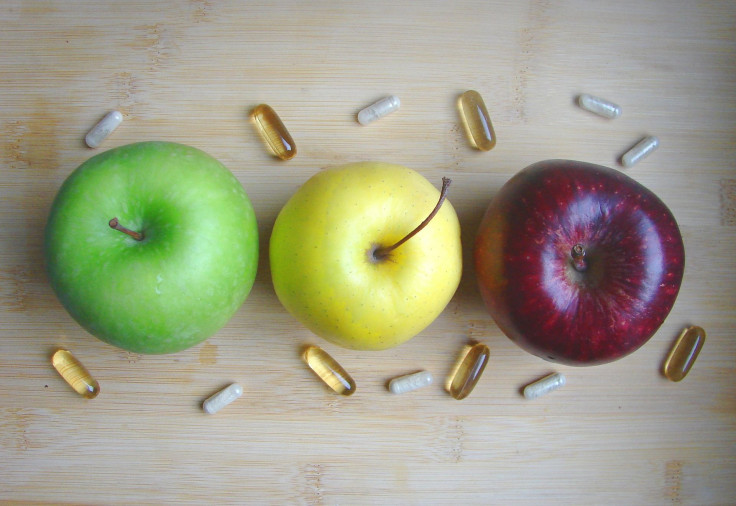Migraines May Signal Vitamin Deficiency; What You Should Eat To Fortify Yourself Against Headaches

Migraines symptoms strike like lightening in the heads of 38 million men, women, and children in America. The causes can be mysterious. But recent research presented at the 58th Annual Scientific Meeting of the American Headache Society revealed that screening for vitamin deficiencies may be the key to unlock a quieter, calmer brain.
Migraines can be debilitating. Every 10 seconds someone in the United States goes to the emergency room because of throbbing head pain, adding up to 1.2 million visits a day. When researchers tested 7,691 patients for vitamin deficiencies, they found those who suffered from frequent migraines were significantly more likely to have low levels of vitamin D, vitamin B2, folate, and co-enzyme Q10. Because each vitamin plays an integral role in producing energy in cells, researchers theorize that not getting enough needed vitamins could trigger a migraine, prompting the brain for help.
"Further studies are needed to elucidate whether vitamin supplementation is effective in migraine patients in general, and whether patients with mild deficiency are more likely to benefit from supplementation," said the study’s lead author Dr. Suzanne Hagler, a research fellow at the Cincinnati Children's Hospital Medical Center, in a statement.
Previously, a 2012 study linked magnesium deficiency to migraine. Those who suffer from migraines regularly have been found to have low levels of magnesium compared to those who don’t experience any migraines or headaches at all. Since then, doctors have recommended combining magnesium with a multivitamin when migraine symptoms first appear. These new findings may add to the list of necessary vitamins.
It’s difficult to consume all of the dietary vitamins necessary to keep their body running efficiently, which is why many people turn to vitamin supplements for help. However, it’s best to try to weave in vitamin-rich food items in order to help stave off looming migraines.
According to The National Institutes of Health Office of Dietary Supplements, vitamin D helps the body absorb calcium and is plentiful in salmon, tuna, swordfish, and also cheese and eggs. But the best options to turn to are either milk or orange juice fortified with vitamin D.
When it comes to vitamin B2, soybeans, spinach, turkey, almonds, and yogurt are ideal foods to incorporate into the diet. Folate is also found in many dark green vegetables like broccoli and spinach, along with chickpeas, beans, and lentils. Co-enzyme Q10 can also be found in broccoli, dark leafy greens, but also nuts, fish, shellfish, pork, chicken, and beef. Lastly, for a boost of magnesium, eat almonds, sunflower and pumpkin seeds, bananas, cashews, and flaxseed, and drink milk.
To learn more about vitamins, turn to our cheat sheet to help guide you through safe supplementation. Read here.
Source: Green A, Hagler SE, Obrien H, et al. Riboflavin, CoEnzyme Q10, Folate, and Vitamin D Deficiency in Pediatric, adolescent, and Young Adult Migraine Patients. 58th Annual Scientific Meeting of the American Headache Society. 2016.



























